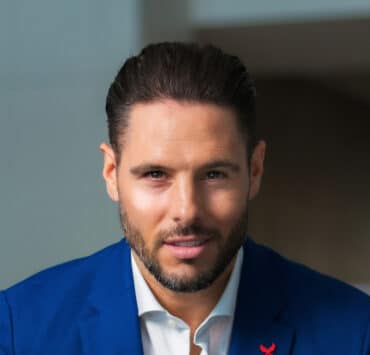|
Getting your Trinity Audio player ready...
|
When Trane Technologies Vice President and Deputy General Counsel of Product Litigation Allan Tananbaum was in law school, his father, a lawyer who ran his own two-person firm, advised him to practice at a large firm. This path, his father thought, would allow him to focus his talents on the law instead of dividing his attention between professional practice and the day-to-day management of a firm, including making payroll and other bureaucratic responsibilities.
Having become a big-firm lawyer turned seasoned big company in-house lawyer, Tananbaum is glad he took his father’s advice. What he most enjoys about his role is the lasting impact he can have on how a business is run and helping it achieve its long-term goals.
Tananbaum had a crucial chance to assist in long-term strategy when, in June 2020, Aldrich Pump and Murray Boiler, two subsidiaries of Trane Technologies, filed petitions for Chapter 11 relief. As Bloomberg reported at the time, these filings would “deal with legacy asbestos liabilities and free the industrial manufacturer from facing exposure-related lawsuits going forward.”
At the time, Tananbaum had only been in his current leadership role for two months. But he had been with the company for fifteen years, including a decade-long stint as the company’s chief compliance officer.
“A lawyer isn’t worth his salt if he does not try to take some usable lessons from difficult cases.”
Allan Tananbaum
In his prior role, Tananbaum worked closely with both Trane’s general counsel and the audit committee of the board of directors to expand and strengthen the company’s existing compliance program. He added resources in every geographic region and helped build—and sustain—a strong culture of ethics and integrity. From establishing a global integrity council chaired by the company’s CEO to creating an interactive, values-based, revised code of conduct to conducting professional investigations and training sessions, Tananbaum’s hallmark approach was to proactively partner with business leaders and employees to provide guidance and solve problems.
Deploying this proactive approach to help resolve Trane’s asbestos litigation once and for all was just the challenge and opportunity he’d signed up for.
“There had been a corporate restructuring that created two new legal entities that were allocated the company’s historical asbestos liabilities and associated insurance assets. Aldrich and Murray also became parties to agreements with larger Trane entities that promised to fund those asbestos liabilities to the extent the subsidiaries’ assets proved insufficient, either in the tort system or via a bankruptcy trust. Aldrich and Murray then took the opportunity to evaluate whether an asbestos bankruptcy was something worth proceeding with,” he says.
“When I took on my current role, a lot of that restructuring work was already underway. Once the restructuring was complete, I became fully seconded to Aldrich and Murray as their chief legal officer, and I assisted the management of these entities and their boards in analyzing whether the filing of the bankruptcy was a good idea or whether they would just stay the course litigating in the tort system, as Trane had for many years.”
In 2005, Tananbaum joined American Standard, one of America’s oldest manufacturers of plumbing and heating products. Back in 1984, it had bought the Trane Company, a leading air conditioning and heating systems manufacturer, which American Standard continued to operate under its own brand. “I previously had been at Honeywell for three years and really enjoyed it,” Tananbaum says. “But I had the opportunity to lead and run the litigation function at American Standard.”
In 2008, after American Standard split itself up and was renamed Trane, Trane was purchased by Ingersoll Rand. At that point, Tananbaum was appointed to run the litigation function at the combined company, which was renamed Trane Technologies in early 2020, after a divestiture. Both historical Trane and historical Ingersoll Rand had asbestos liabilities, and these were allocated to Murray and Aldrich, respectively.
The goal of the Chapter 11 filings “is to effectuate a full, fair, and final resolution of the companies’ asbestos liabilities,” Tananbaum states. “The asbestos tort system is riddled with inefficiencies and extraneous costs. Some money goes to claimants, but more than half of everything spent goes to lawyers on both sides, experts, and other providers. There are differing outcomes for similar cases that can depend on where cases are filed and which plaintiff’s firm did the filing.”
The section 524(g) asbestos bankruptcy proceeding enables the subsidiaries to attempt to negotiate a consensual trust with creditors, which when funded can streamline the claims-filing process and ensure compensation for both current and future legitimate claimants according to standardized criteria. All of this would be in lieu of individual cases in the tort system.
“In setting up a trust, you can have clear and simple instructions about applying to the trust, including filling out a form that includes supporting information, and, if the submission qualifies, receiving payment,” Tananbaum says. “It’s good for legitimate claimants, but it’s good for the companies too.”
“You’ve got to hear everybody, encourage them to make their own contribution, and you have to realize that you don’t have all the answers. By lifting up your people, you’re lifting up the entire team.”
Allan Tananbaum
Tananbaum did not have previous bankruptcy experience (“not many in-house lawyers do,” he says), but he brought to his new role two substantive areas of expertise. “I know my way around asbestos litigation and I have significant experience accessing and monetizing asbestos insurance assets,” he states. “I wanted to overlay a new area of practice on my previous knowledge and skill sets.”
As a team leader, Tananbaum is a strong believer in the maxim that lawyers can learn more from cases where things go less well than planned than the ones that they win handily. “A lawyer isn’t worth his salt if he does not try to take some usable lessons from difficult cases or at least minimize the damages,” he says.
“What were the drivers that got us to this bad place? What can we do differently the next time? Some of the lessons may be tactical ones for the lawyers, but others might be basic lessons for the business. I also learned early on that even when you win in court, sometimes only the lawyers are happy. Internal clients may only see the distractions and the costs of litigation and assume the terrific result was nothing more than their rightful due.”
He is also a strong believer in the “When they look good, you look good” school of mentoring and leadership. He cites one of his own mentors, Mary Beth Gustafsson, his general counsel at American Standard and the current GC of ITT, as an important influence on his leadership philosophy.
“I learned a lot from her about letting people spread their wings and get the job done,” he says. “You’ve got to hear everybody, encourage them to make their own contribution, and you have to realize that you don’t have all the answers. By lifting up your people, you’re lifting up the entire team.” Tananbaum also sees this same philosophy in action from current Trane GC Evan Turtz, whom he has had the pleasure of working with for many years.
“The Claro Group celebrates Allan Tananbaum’s well-deserved recognition by Modern Counsel and applauds a leadership grounded in integrity, intellectual curiosity, and collaboration,” says managing director Michelle Uddin. “We are honored to partner with him and the entire Trane Technologies team.”
When he’s not busy lawyering, Tananbaum strives to uplift people through his volunteer work. He is involved with Family Connections, which provides an array of programs in Northern New Jersey to combat trauma, mental illness, addictions, domestic violence, and child abuse, and Devereux Behavioral Health, which supports people with intellectual and developmental challenges and specialty mental health needs.
He and his wife of twenty-four years have “three great kids,” he says: a twenty-one-year-old college senior who is circling the legal profession, an eighteen-year-old college freshman and working actress, and a sixteen-year-old high school junior. They enjoy hiking as a family and experiencing live theater. They recently returned to Broadway for the first time since the pandemic’s onset to see To Kill a Mockingbird, starring Jeff Daniels as small-town defense attorney Atticus Finch, one of the most beloved characters in all literature and film.
A lawyer, of course, Tananbaum notes with a laugh.


